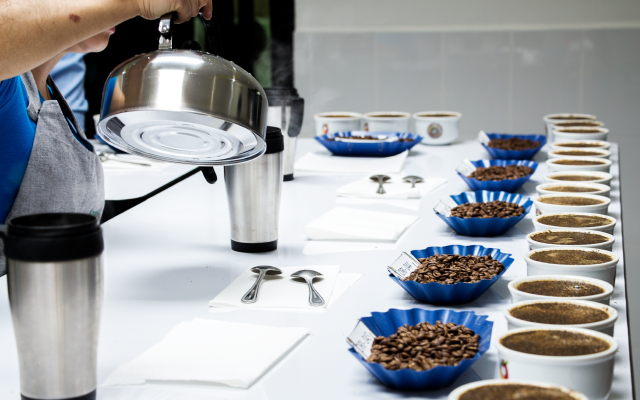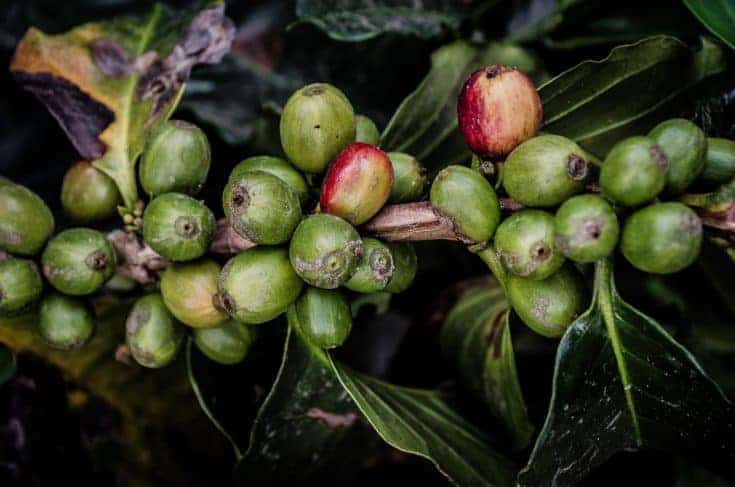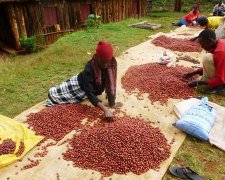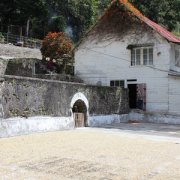World's best Rwandan coffee beans Growing conditions Double washed coffee beans Flavor Taste characteristics
Although you are one of the top 30 coffee producers in the world, you know very little about Rwandan coffee. They are relatively new in the field of boutique coffee and have to overcome some major setbacks. Nevertheless, the geographical and climatic conditions of this beautiful country are perfect for the growth of high-quality coffee beans.
Walk into Rwanda
Rwandan coffee, like the country it comes from, is famous for its depth and complexity.
In 2018, they produced 33069000 pounds of raw coffee beans, nearly 100 per cent of which were exported, making them Rwanda's largest export. It accounts for more than 24 per cent of the country's exports.
However, you don't see that much, because a large portion of Rwanda's exports are actually destined for Japan, just like Jamaican Blue Mountain Coffee, which makes it more scarce in other markets. In addition, overall, it accounts for less than 1 per cent of global coffee production. In addition, coffee production in Rwanda is not always that high or profitable. In 2000, boutique coffee accounted for 0% of its crops, leaving only low-grade coffee beans. However, by 2017, this figure has jumped to 52 per cent and is expected to continue to increase to more than 80 per cent by 2020. Today, 95% of their crops are the revered bourbon Arabica coffee plant. Moreover, under appropriate conditions, the plant will produce high-quality beans.
The best Rwandan coffee
JOE COFFEE Rwanda EJO HEZA
Ejo Heza, which means "better tomorrow", is perfect for this Joe Coffee blend; every time you see a bag of beans on the counter, you will think of the bright, fruity cup of coffee you will enjoy tomorrow morning. The beans are full of red plums, orange blossoms and custard, making a pleasant fruity beer that is a little sour.
Ejo Heza Coffee, from an all-women's cooperative of the same name in the western province of Rwanda, donates $1 for each Joe coffee purchased to the Women's Coffee Project, which aims to highlight and celebrate women's achievements in the coffee industry.
WESTROCK COFFEE COMPANY Rwanda Select Reserve
First of all, our premium, fair trade, 100% Arabica coffee options. The Arkansas-based company began promoting sustainable agriculture in Rwanda through its agribusiness training program. Today, they have extended sustainable practices to the coffee industry in 21 countries. These dark coffees produce a full-bodied dark wine. It has a smell of smoked cedar with hints of blackcurrant and citrus. In addition to obtaining Fairtrade certification, the company uses direct trade practices to ensure that its beans are purchased in an ethical manner.

Organized Coffee Rwanda KANZU LOT # 11
Methodical Coffee's Rwanda Kanzu Lot # 11 coffee is known for its silky and tea-like taste, but moderately roasted beans will still give you the rich, high-quality flavor you expect from brewing. The coffee is dried after harvest, with flavors of black tea, cherry and figs, which combine to make a cup of sweet and sour morning (or afternoon) coffee.
CUBICO COFFEE Rwanda KOPAKAKI COFFEE
Cubico Coffee, from the Karongi district in western Rwanda, provides Kopakaki coffee grown by small farmers' cooperatives. These Arabica coffee beans are medium-sized city roasted coffee beans that produce strong black tea and lime flavors with alcoholic flavours.
TEASIA COFFEE single producing area in Rwanda
Teasia's Rwanda Coffee is another single-source, sustainable 100% Arabica coffee bean seed. The beans are grown at an altitude of about 5000 to 6000 feet above sea level in Lake Kivu. Coffee beans are processed by wet processing and medium-deep baking in a manual roaster. The brew has a rich, deep finish and a clean and bright taste.
Amazon FRESH LIGHT ROAST Rwanda
This is also 100% Arabica coffee, which is a single source of direct trade. The fresher the beans, the more satisfying the cup will be. The beans brewed into delicate cups with a pleasant citrus flavor. You can enjoy it under the wonderful and rich aroma. All of these are baked in small batches and purchased from small farmers. In addition, they are fully washed bourbon varieties of beans, and the series has been highly rated. So the next time you are in a local store, please pay attention to Rwanda's coffee reserve.
What makes it special?
Growth condition

First of all, to understand coffee, you need to know where and how it is grown. Rwandan coffee, which is globally recognized for its high quality, usually comes from hillside farms between 5200 and 6500 feet above sea level.
However, most farms are still within 4000 to 6000 feet. High altitude, volcanic soil, plenty of sunshine and equatorial mist are conducive to the growth of Arabs. Plants bloom in September and October and are processed from March to July.
Wet processing
In Rwanda, the vast majority of coffee is processed completely wet. This is the latest development in the coffee industry there, but to a large extent it is the reason for the increase in output and quality.
Unlike the rest of the world, these cleaning stations have nothing to do with large coffee estates and cannot handle everything internally. On the contrary, these washing stations cater to many small farmers, who often grow coffee in addition to other crops.
This process is also known as complete washing or double washing. It involves soaking beans twice and is more common in Africa than in other regions such as Latin America.
Wet processing is best suited for complex flavor features, which is the reason why Rwandan coffee is now known as obviously clean, bright and fruity. The favorable climate and high-quality processing have created some very delicious coffee. Overall, you can expect a full-bodied, creamy wine with a buttery hue and a caramel finish. In terms of flavor, your taste bud will like the bright citrus flavor, accompanied by floral or fruity aromas.
Important Notice :
前街咖啡 FrontStreet Coffee has moved to new addredd:
FrontStreet Coffee Address: 315,Donghua East Road,GuangZhou
Tel:020 38364473
- Prev

Coffee origin affects the taste of boutique coffee beans. Rwanda single coffee brands recommend climate-friendly.
The origin of coffee has a great influence on the taste of coffee beans. The quality of the soil, the altitude, and even the rainfall in an area determine what kind of coffee can be grown there and the taste of the coffee produced. Coffee producing areas are often classified as mainland-based categories, which is a good start. South American coffee tastes different from African coffee, while Indonesian coffee tastes like
- Next

Story of Rwanda Coffee processing Plant Flavor characteristics of Boutique Coffee growing Environment in Gesak, Rwanda
Two days ago, Rwandan coffee beans were found in Qianjie, not from any manor but from Gesak washing processing station. Very interested in this phenomenon, is it like Kenyan coffee that small coffee farmers send their coffee to the washing station? After checking the data, we found that this is indeed the case. Many coffee farmers in Rwanda are unable to create as many large coffee farms as large coffee farms around the world.
Related
- Detailed explanation of Jadeite planting Land in Panamanian Jadeite Manor introduction to the grading system of Jadeite competitive bidding, Red bid, Green bid and Rose Summer
- Story of Coffee planting in Brenka region of Costa Rica Stonehenge Manor anaerobic heavy honey treatment of flavor mouth
- What's on the barrel of Blue Mountain Coffee beans?
- Can American coffee also pull flowers? How to use hot American style to pull out a good-looking pattern?
- Can you make a cold extract with coffee beans? What is the right proportion for cold-extracted coffee formula?
- Indonesian PWN Gold Mandrine Coffee Origin Features Flavor How to Chong? Mandolin coffee is American.
- A brief introduction to the flavor characteristics of Brazilian yellow bourbon coffee beans
- What is the effect of different water quality on the flavor of cold-extracted coffee? What kind of water is best for brewing coffee?
- Why do you think of Rose Summer whenever you mention Panamanian coffee?
- Introduction to the characteristics of authentic blue mountain coffee bean producing areas? What is the CIB Coffee Authority in Jamaica?

